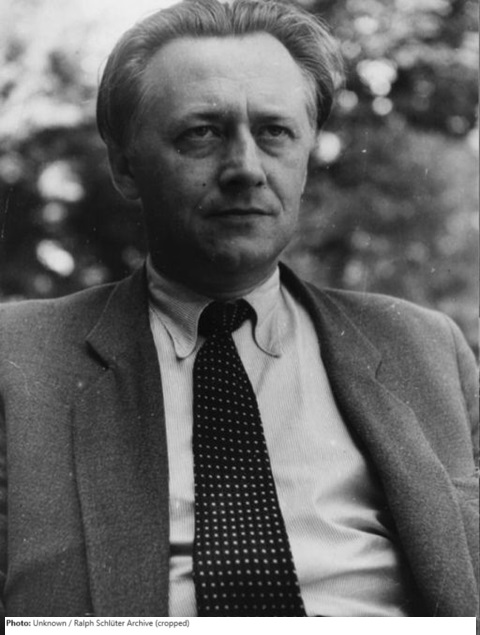Polish artist Zbigniew Turski was awarded the gold medal for his Symfonia Olimpijska (Olympic Symphony) at the 1948 London Art Competitions in the category Music, Compositions for Opera. In London in 1948, the symphony was performed by the BBC Symphonic Orchestra and broadcast on radio on September 18th and 23rd. Turski’s 2nd Symphony “Olympic” from 1948 consists of three movements instead of the traditional four (durations in brackets): 1. Andante con moto – Lento sostenuto – Allegro non troppo (12:01); 2. Larghetto (8:03); 3. Presto, Tempo di marcia – Allegro risoluto – Presto (5:06). Soon after, his symphony was stigmatized as “formalistic” and not in line with the Socialist “realism” demanded by the official cultural policy. Polish stamps, issued on the occasion of the 1960 Olympic Games in Roma, celebrated previous Polish gold medal winners: The 2.50 Zł. stamp celebrated Zbigniew Turski’s gold medal in the art competitions.
Turski was a conductor and composer influenced by French modernism. A graduate of the Warszawa Conservatory, Turski worked from 1939 as musical director of the Warszawa radio. Most of his previously written music was lost during the Warszawa uprising in 1944. In 1945 he co-founded the Baltic Philharmony. In 1948-49 he lectured composition at the Warszawa Theatre Academy, and in the years 1951-52 taught composition at the Warszawa Chopin Academy of Music. Turski was music director of the Contemporary Theatre in Warszawa from 1957 until shortly before his death. In 1959-60 he was president of the Polish Composers Union. He was especially known for composing theatre music. His main works also included symphonies, a violin concerto, chamber music, cantatas, works for piano and songs.

 Poland
Poland POL
POL